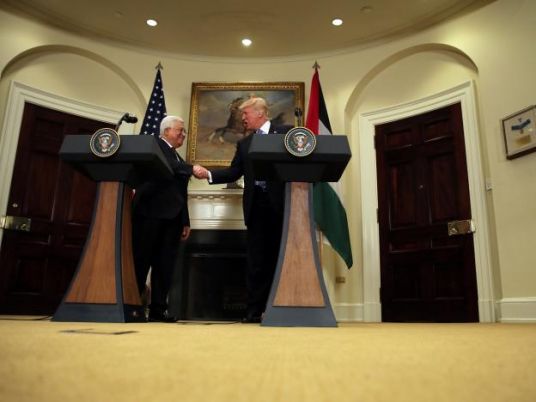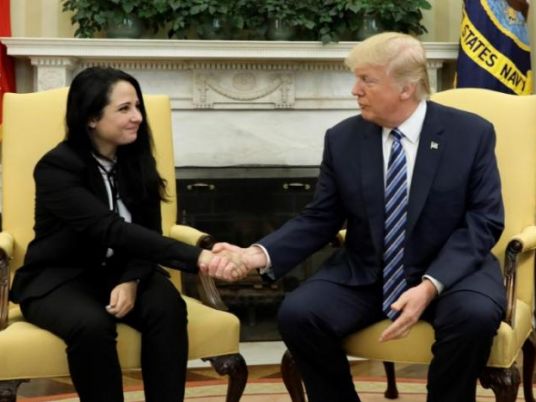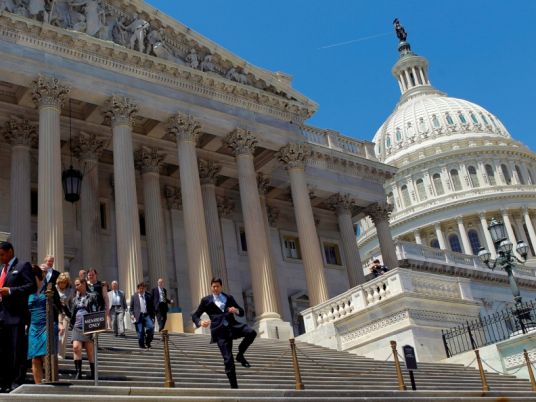Is Donald Trump a fascist?
To answer that question it is helpful to examine three interrelated phenomena: the history of European fascism, the rise of far-right nationalist parties around the West today and what historian Richard Hofstadter famously termed "the paranoid style in American politics."
Let's start with the classic 2004 study "The Anatomy of Fascism" by American historian Robert Paxton, who examined the fascist movements of 20th-century Europe and found some commonalities among them. They played on:
• "A sense of overwhelming crisis beyond the reach of traditional solutions." Trump's ascendancy outside the structures of the traditional Republican Party and his clarion calls about America's supposedly precipitously declining role in the world capture this trait well.
• "The superiority of the leader's instincts over abstract and universal reason." Trump's careless regard for the truth — such as his claims that thousands of Muslims in New Jersey cheered the 9/11 attacks, or that Mexican immigrants are rapists and murders — and the trust he places in his own gut capture this well.
• The belief of one group that it is the victim, justifying any action. Many in Trump's base of white, working-class voters feel threated by immigrants, so Trump's solution to that, whether with Mexico (build a wall) or the Islamic world (keep them out), speaks to them.
• "The need for authority by natural leaders (always male) culminating in a national chief who alone is capable of incarnating the group's destiny." This seems like quite a good description of Trump's appeal.
In Paxton's checklist of the foundational traits of fascism there is a big one that Trump does not share, which is "the beauty of violence and the efficacy of will when they are devoted to the group's success."
There is no hint that Trump wishes to engage in or to foment violence against the enemies, such as immigrants, he has identified as undermining the American way of life.
One is therefore left with the conclusion that Trump is a proto-fascist, rather than an actual fascist. In other words, he has many ideas that are fascistic in nature, but he is not proposing violence as a way of implementing those ideas.
So how else might we frame the Trump phenomenon? It's useful to view in the context of the wave of the far-right nationalist movements that have swept Europe in recent years and that are defined by hostility to immigrants and minorities.
On Sunday, Marine Le Pen's National Front far-right party finished first in the initial round of regional elections in France, transforming her party, in the words The New York Times, from "a fringe movement into a credible party of government."
The National Front obtained more than a quarter of the votes and is leading races in just under half of France's 13 regions.
The National Front was doubtless given a boost last month by the Paris massacres that killed 130 and were carried out, in part, by second-generation French immigrants.
A similar phenomenon to Trump can be found in Hungary, where the popular Prime Minister, Viktor Orban, has ordered the construction of fences to prevent Middle Eastern refugees from reaching his country and has said it will only offer asylum to Christian refugees.
Trump's pronounced anti-immigrant stance is reminiscent of both Le Pen in France and Orban in Hungary, although he is far from alone in taking such positions in much of today's Republican Party.
Finally, it's helpful to position Trump in the long tradition of what Hofstadter had termed in 1964 "the paranoid style in American politics," his well-known analysis of an American far-right that believed vast conspiracies were undermining the United States.
Trump has updated the paranoid right for the post-9/11 era: Instead of a communist plot to take over America, the conspiracy theory favored in the 1950s, the threat is now immigrants, whether they are Mexicans or Muslims. (Earlier waves of American jingoistic paranoia in the 19th century were directed at Masons and then Catholics.)
Trump displays many of the traits of a proto-fascist, and he is also part of a wave of right-wing nationalist movements that is sweeping the West. He can also be positioned in the long, American right-wing tradition of fearing "the Other," whether they are Catholics or Jews or, now, Muslims.
If the party of Lincoln wishes to become the party of intolerance, selecting Trump to be its presidential candidate is a good way forward.




